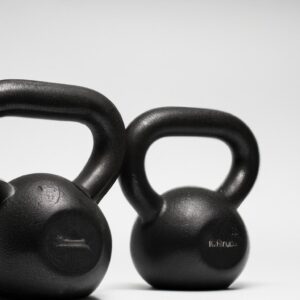**”The Role of Plant-Based Omega-3 Fatty Acids in Enhancing Endurance Performance: Exploring Sources and Benefits for Athletes”**
# The Role of Plant-Based Omega-3 Fatty Acids in Enhancing Endurance Performance: Exploring Sources and Benefits for Athletes
In recent years, the athletic community has begun to recognize the importance of nutrition in enhancing performance and recovery. Among the many nutrients that contribute to these areas, omega-3 fatty acids have received considerable attention. While fish oil has traditionally been the go-to source for omega-3s, plant-based alternatives are increasingly being embraced, especially by those following vegetarian or vegan diets. This blog post will explore the role of plant-based omega-3 fatty acids in improving endurance performance, highlighting their sources, benefits for athletes, and practical tips for incorporating them into a diet.
## Understanding Omega-3 Fatty Acids
### What Are Omega-3 Fatty Acids?
Omega-3 fatty acids are essential fats that play a crucial role in numerous bodily functions. They are categorized into three main types: ALA (alpha-linolenic acid), EPA (eicosapentaenoic acid), and DHA (docosahexaenoic acid). While EPA and DHA are primarily found in fish and seafood, ALA is predominantly derived from plant sources. Athletes, particularly those engaged in endurance sports, are increasingly turning to ALA to support their training and recovery.
### Benefits for Endurance Athletes
1. **Reduced Inflammation**: Omega-3s are known for their anti-inflammatory properties, which can be particularly beneficial for endurance athletes who often experience muscle soreness and joint pain after long training sessions.
2. **Improved Blood Flow**: These fatty acids promote vasodilation, which enhances blood circulation and oxygen delivery to muscles, potentially improving performance and endurance.
3. **Enhanced Recovery**: By reducing inflammation and oxidative stress, omega-3s can aid in faster recovery, allowing athletes to train more effectively and with less downtime.
## Sources of Plant-Based Omega-3 Fatty Acids
### Top Plant Sources
1. **Flaxseeds**: Ground flaxseeds are rich in ALA and can easily be added to smoothies, oatmeal, or baked goods.
2. **Chia Seeds**: These tiny seeds pack a punch of omega-3s and can be used in puddings or as an egg substitute in baking.
3. **Walnuts**: A delicious snack or addition to salads, walnuts are another excellent source of ALA.
4. **Hemp Seeds**: These seeds not only provide omega-3s but also offer a complete protein profile, making them a great addition to an athlete’s diet.
5. **Algal Oil**: A newer player in the arena, algal oil is derived from algae and is one of the few plant sources that provide EPA and DHA, making it an excellent supplement option for athletes.
## Nutrition Tips
1. **Incorporate Variety**: Ensure you are consuming a mix of the above sources to maximize your intake of ALA and other nutrients.
2. **Prepare Ahead**: Make a batch of chia pudding or overnight oats with ground flaxseeds for easy, nutritious breakfasts or snacks on-the-go.
3. **Use Oils Wisely**: Consider adding flaxseed oil or hemp oil to salad dressings or smoothies, but avoid heating these oils, as they can lose their beneficial properties.
4. **Be Mindful of Balance**: While omega-3s are important, maintaining a balanced omega-6 to omega-3 ratio is crucial for optimal health. Focus on reducing processed omega-6 fatty acids found in many oils and processed foods.
## Exercise Advice
1. **Timing**: Consider consuming plant-based omega-3s in the days leading up to an event or heavy training session to maximize their benefits. Regular consumption can build up anti-inflammatory effects over time.
2. **Combine with Carbs**: Pairing omega-3 sources with carbohydrate-rich foods can enhance recovery by replenishing glycogen stores and promoting muscle repair.
3. **Stay Hydrated**: Adequate hydration is essential for optimal performance and recovery. Omega-3s can help maintain hydration by supporting the integrity of cell membranes.
## Health Benefits
1. **Heart Health**: Omega-3 fatty acids support cardiovascular health by reducing blood pressure and cholesterol levels, crucial for endurance athletes who place significant demands on their hearts.
2. **Cognitive Function**: Omega-3s are essential for brain health, which can enhance focus, decision-making, and overall mental clarity during intense training and competition.
3. **Joint Health**: By reducing inflammation, omega-3s can help protect against joint pain and stiffness, allowing athletes to maintain a consistent training regimen without discomfort.
## Conclusion
Incorporating plant-based omega-3 fatty acids into the diets of endurance athletes can provide multiple benefits, from improved performance and recovery to enhanced heart and joint health. By understanding the sources and practical applications of these essential fats, athletes can optimize their nutrition and training regimes. Whether you are a seasoned athlete or a weekend warrior, embracing plant-based omega-3s can enhance your endurance performance and overall health.















Post Comment